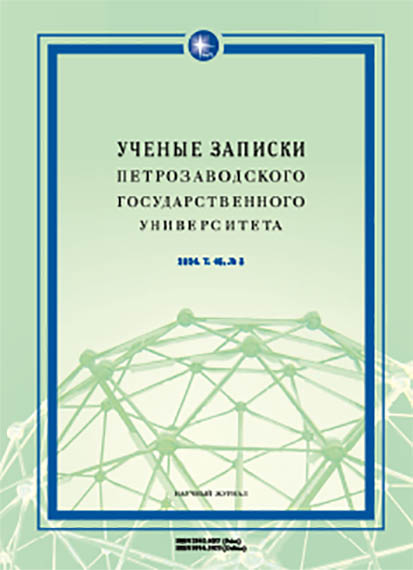КАЧЕСТВО ИЗУЧАЕМОГО ЯЗЫКОВОГО МАТЕРИАЛА И ЯЗЫКОЗНАНИЕ КАК НАУКА
THE QUALITY OF STUDIED LANGUAGE MATERIAL AND LINGUISTICS AS A SCIENCE
Author(s): Zamir Kurbanovich Tarlanov, Zamir Kurbanovich TarlanovSubject(s): Language and Literature Studies, Theoretical Linguistics, Eastern Slavic Languages
Published by: Петрозаводский государственный университет
Keywords: Russian linguistics; European linguistics; scientific discourse; scientific research; apriority; evidence; factual material; science; culture; science-culture relationship;
Summary/Abstract: The article studies the nature of the connection between ethnic (national) culture and the development of scientific thought, particularly in linguistics. It is proved that the connection between science and culture is inherently unilateral, with culture acting as a vital and compulsory catalyst for the emergence of scientific inquiry, explaining the ethno-cultural dependency of science. The research draws on the analysis of linguistic materials, methods, and methodology that comprise the content of the fundamental and universally recognized classical works of European and Russian linguistics of the XIX and the XX centuries written by G. Paul, F. de Saussure, C. Bally, J. Vendryes, L. Hjelmslev, A. A. Potebnya, A. A. Shakhmatov, A. M. Peshkovsky, V. V. Vinogradov, L. V. Shcherba, V. M. Zhirmunsky, etc. The article substantiates and proves the assertion that European scientific linguistic text, which may be appropriately referred to as scientific discourse (scientific narrative, narrative), can be classified as deductive-declarative in nature when it comes to presenting factual information. Rather than exhaustively examining quantitative data, this type of discourse typically utilizes individual examples to support a predetermined theoretical standpoint. The extreme manifestation of this approach can be seen in glossematics, as exemplified in the writings of L. Hjelmslev. Russian linguistics demonstrates something entirely different that draws upon an impressive factual base – namely, an introductory or generalizing scientific presentation. In both cases, this presentation is grounded in factual evidence subjected to a meticulous and usually exhaustive analysis. This factual material must not be random or peripheral and must not lack socio-cultural significance, although even the peripheral facts are thoroughly examined and assessed. In any case, this discourse is not subjectively or arbitrarily generated, and cannot be continued indefinitely in various directions. In accordance with this, Russian linguistics is distinguished by its reliance on abundant concrete factual evidence, evidence-based approach, encyclopedic nature, and profound integration into national culture. It is predominantly multifaceted and humanistically oriented in its content.
Journal: Ученые записки Петрозаводского государственного университета
- Issue Year: 46/2024
- Issue No: 3
- Page Range: 28-35
- Page Count: 8
- Language: Russian

